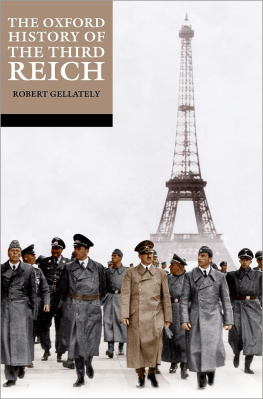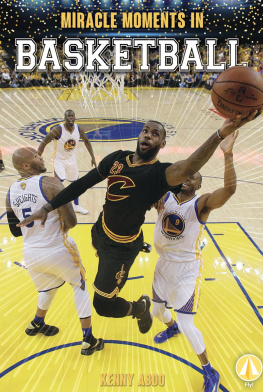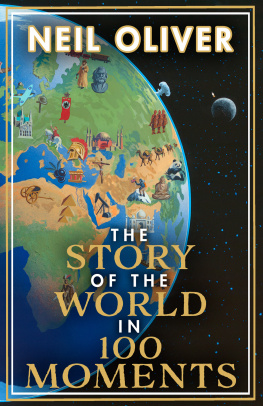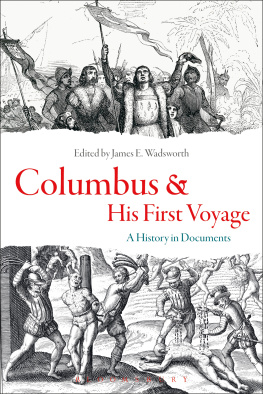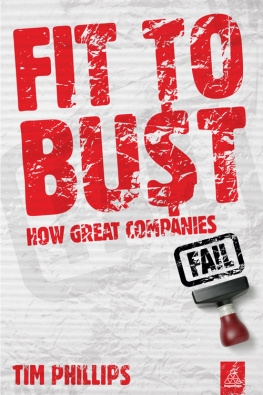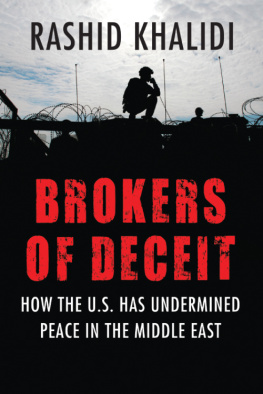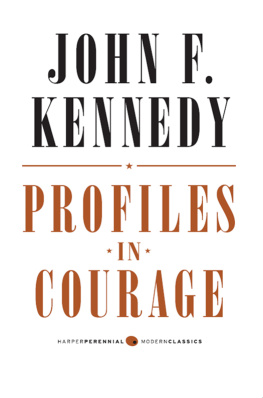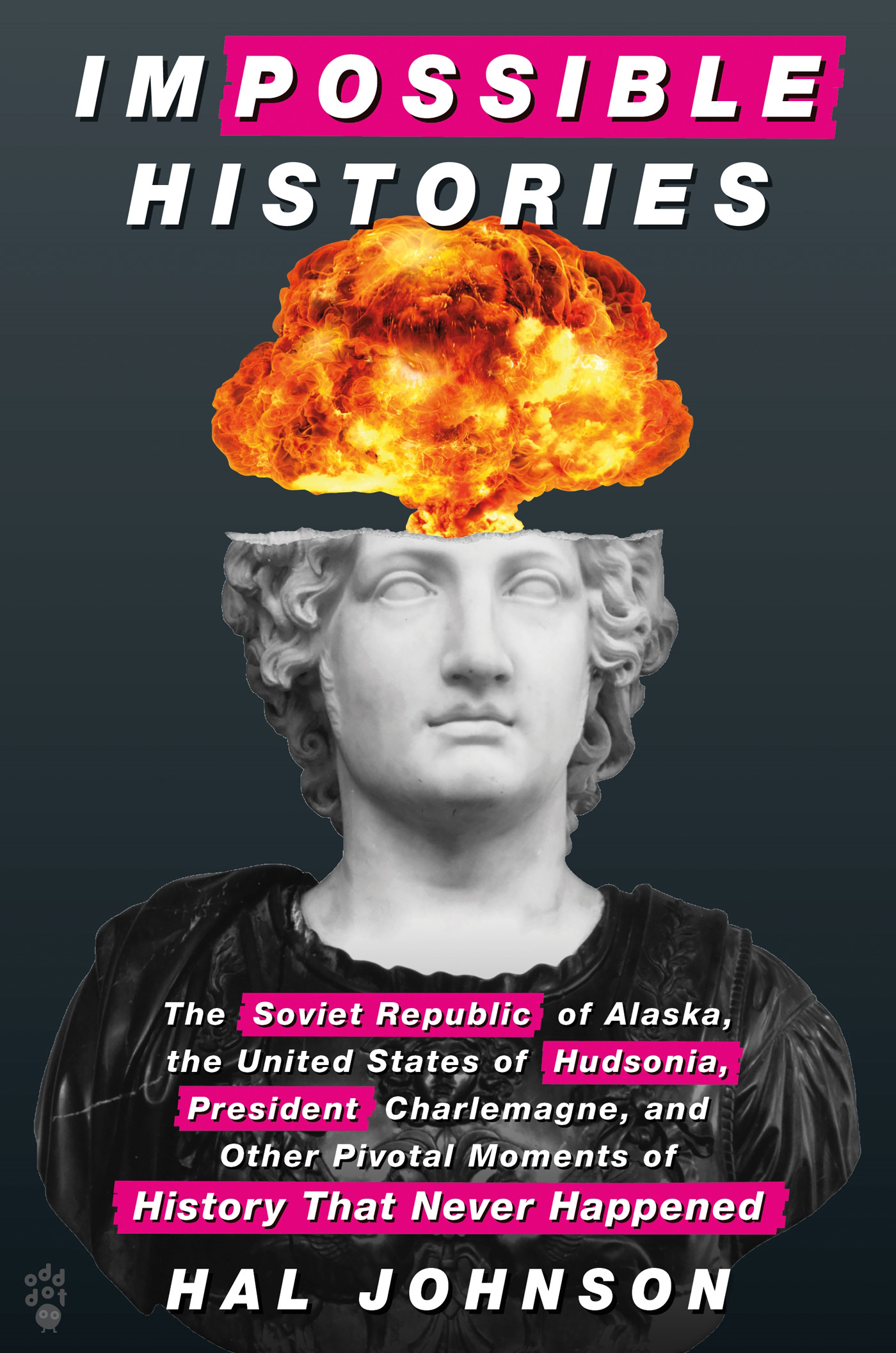Contents
Guide
Pagebreaks of the print version

The author and publisher have provided this e-book to you for your personal use only. You may not make this e-book publicly available in any way. Copyright infringement is against the law. If you believe the copy of this e-book you are reading infringes on the authors copyright, please notify the publisher at: us.macmillanusa.com/piracy.
For my parents
for starting this whole mess
George Ross tells of the movie magnate who was once asked if he had read H. G. Wellss Outline of History.
Naw, he said, I thought it might make a good picture. But I looked at the ending, and I dont like the way the story comes out.
Dr. Francis Leo Golden, Tales for Salesmen (1951)
History is really big and really long, and it keeps getting bigger and longer. However much you try to write about any historical topic, something will be left out. A history book should be the exact opposite of a mystery novel, with carefully inserted clues and a confession in the last chapter. Even the confessions in history are suspect. Even the corpse in the chalet may not exist.
Every sentence in this book, including this one, should be accompanied by a footnote enumerating the exceptions, the ambiguities, and the points of contention. Each footnote would need its own footnotes, of course. Lewis Alice in Wonderland Carroll once wrote about a map with a scale of one mile to one mile; it was too difficult to unfold, so people just used the country itself as a stand-in for the map. Similarly, the only really complete history book would be one of the same length and breadth as history itself.
If youre ever tempted to impart moral value to a historical event from before you were born, theres about an 80% chance youre merely indulging in your own prejudices rather than making an impartial moral judgment. If the historical event dates from before the eighteenth century, say, the odds are closer to 99%. Theres simply too much backstory and too much context. History is two toddlers hitting each other back forever, and the only thing for a historian to do is to tell them, I dont care who started it
Even if the facts of the case are clear, the morality often isnt. Attila the Hun lived and died thinking he was a good person, and he was hardly delusional; the other Huns (except maybe his brother, whom he murdered) thought he was a good person, too. Torquemada, head of the Spanish Inquisition, has long been a watchword for cruelty and intolerance, but in the fifteenth century he was a righteous man.
And yet its so very tempting to make moral judgments about the past! I do it all the time! If my prejudices match yours (I assume you dont like Hitler or Stalin either), youll barely notice. When we differwell, I tried to cite my sources!
Englands greatest scholar of his day, the Venerable Bede, wrote in the preface to his history of England that any errors the reader finds could hardly be blamed on poor Bede, for in accordance with the true law of history, the writer has merely passed along what older books have said. Its the sources fault!
I encourage you to take any assertion I make with a grain of salt. Check my work and catch me out! In any controversy I tend to side with whoever has the better prose style, and this weakness may have led me astray. Im sure I made more blunders than Bede, and I have no one to blame but myself.
On a scale of historical time, pretty soon everyone you have ever loved will be dead. So will you, and so will I. The world we lived in, which you may have loved and may have fought and died for, will change and become unrecognizable. This is just going to happen, and its not my fault.
But I wrote this book, which is my fault. In almost every alternate, hypothetical history, you and I will never have been born. Most people on earth would never have been born. Some chapters here involve the death of millions or hundreds of millions of people. This is pretty bad, and Im sorry. Harder to notice is the fact that if most people alive werent born, thats over a billion souls snuffed out of existence. I did that.
Is any given alternate history better or worse than our unfortunate, benighted real history? Is whatever chapter you turn to a cautionary tale or an aspiration? Judging these questions is as easy and as hard as deciding whether Attila the Hun was a good person.
For all the deaths I caused, for all the people who never even existed, for the inexorable creep of the apocalypsemy only defense is that all of this, unlike, perhaps, you and me, is make believe.
The real deaths (and there are plenty in history) I blame, like Bede, on someone else.
I.
Everyones got a pithy quip about history. History is the autobiography of a madman, wrote the Russian socialist Alexander Herzen. Arnold Toynbee, British historian, complained about the dogma that History is just one damned thing after another, while James Joyce wrote, History is a nightmare from which I am trying to awake.
These are pretty good, but Jane Austen, as was her wont, came closest to the truth when one of her characters sums history up as the quarrels of popes and kings, with wars or pestilences, in every page; the men all so good for nothing, and hardly any women at all; she adds, it is very tiresome.
Whatever else history is, most people would agree that it is an account of things that happened. Theres an old joke that runs: Two men in a bar are watching a televised baseball game. One man bets the other a sawbuck that the visiting team will win. Sure enough, the home teams outfielder drops a fly ball, and the game ends with the visitors victory; but when it comes time to collect the man says, You know what? I feel too guilty to take your money. Theyre airing a game from this morning, and I saw it live. I already knew who would win.
The second man says, I saw the game this morning, too. I just thought for sure this time hed catch that fly.
Whatever that is, thats not history.
II.
Paul Re is most famous now for being friends with Friedrich NietzscheNietzsche had so few friends that all of them are at least a little bit famousbut in the nineteenth century he was known as a philosopher in his own right. How many friends Paul Re had is open to debate, because Re had the annoying habit of going around Europe trying to persuade people they had no free will. No one likes to hear that. People inevitably responded to Res claim by saying, Look, look, I can do whatever I want, and demonstrated their freedom by raising their right arms, always their right arms, to prove their will was free; once Re spoke to a left-handed man, and he, for a change lifted his left. Re was unimpressed.
Re espoused a deterministic view of the world, a view that was somewhat in vogue among depressive cynics of the time. Mark Twain, case par excellence, famously said: The first act of that first atom led to the second act of that first atom, and so on down through the succeeding ages of all life, until, if the steps could be traced, it would be shown that the first act of that first atom has led inevitably to the act of my standing here in my dressing-gown at this instant talking to you.
I am free to lift my arm, if I will it. But am I free to will it? Philosopher Arthur Schopenhauer (whom Re had read) pointed out decades earlier that you are free to put a gun to your head and pull the trigger, if you wish tobut its a rare man who would do it just to prove he was free!


